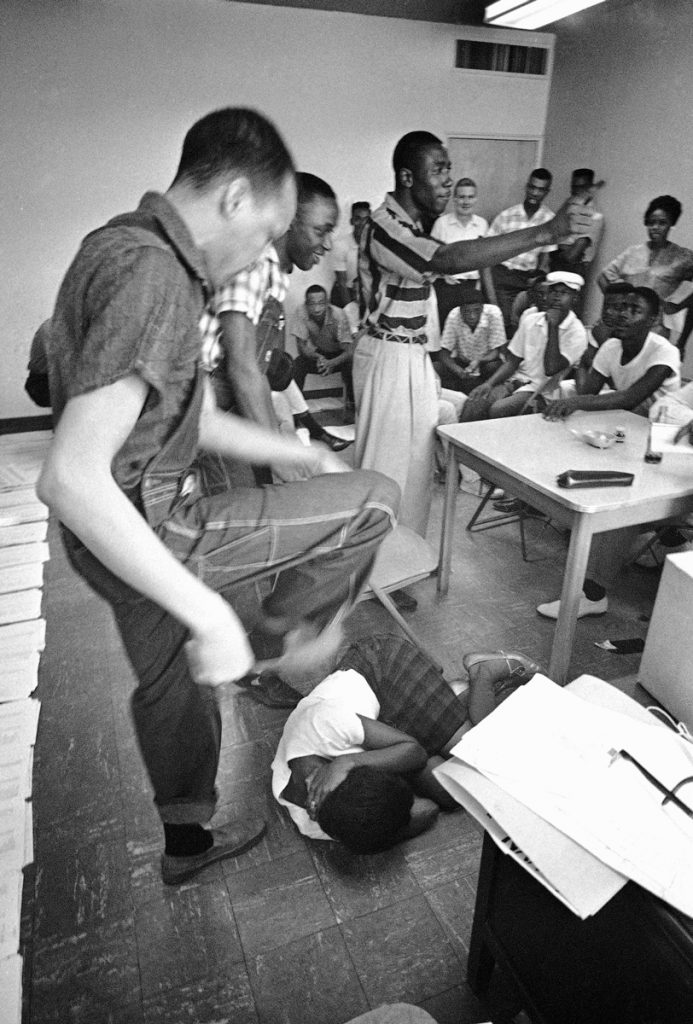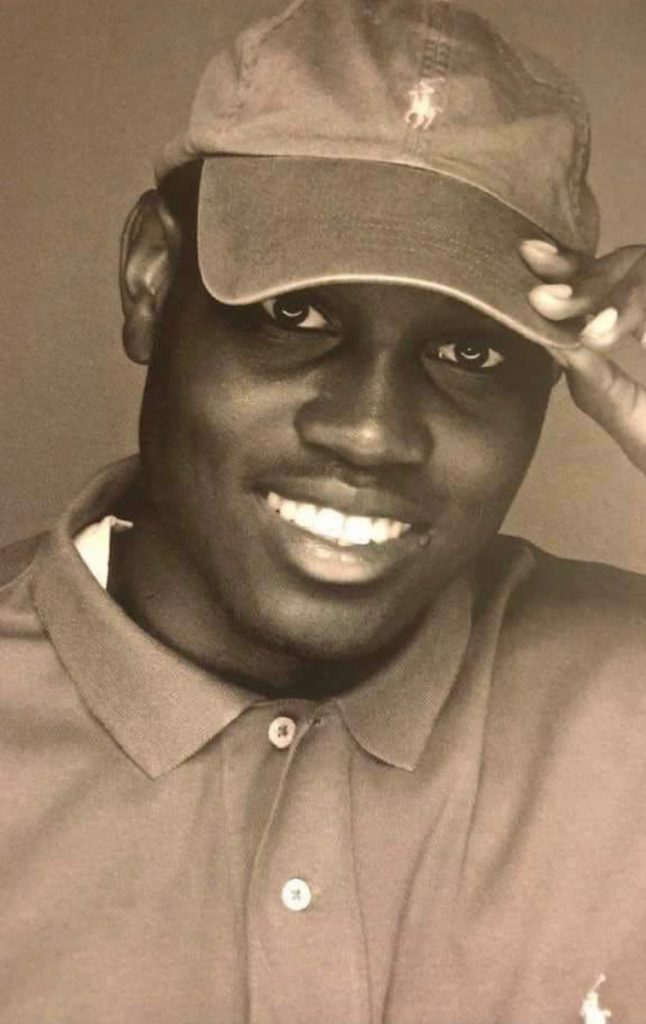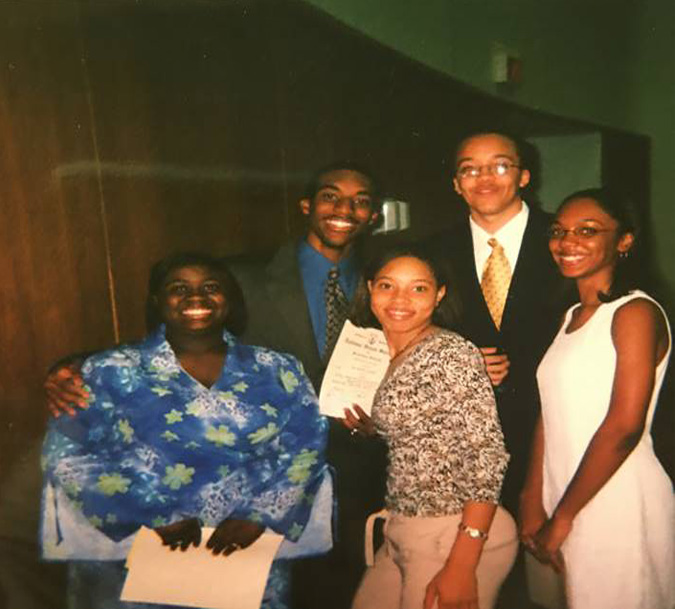David Dennis Jr. comes from a background steeped in the fight for social justice and Black equality. His father, David Dennis, was a Freedom Rider from Louisiana, but stayed in Mississippi after becoming a CORE (Congress on Racial Equality) member in Jackson in 1962. His father helped form COFO (Council of Federated Organizations) with Bob Moses, was close friends with Medgar Evers and helped organize Freedom Summer in 1964.
The lynch-mob kidnapping and murders of activists James Chaney, Andrew Goodman and Michael Schwerner in Neshoba County almost included his father.
“To make a long story short, Goodman, Chaney and Schwerner went down to Neshoba County, and my dad was supposed to be with them, had bronchitis, and they just told him to stay. That’s how he avoided being in the car with them,” Dennis Jr. told the Mississippi Free Press.
The history of his father and the many Black activists who laid the groundwork for freedom fighting in Mississippi in a movement based in the capital city where he grew up is what defines his writing.
“There’s just so much beautiful, wonderful Blackness in Jackson, and I carry that with me wherever I go. When I think about who I want to write about and what I want to uplift and celebrate, I think about what Jackson means to me and what I want to put in my work,” he said.

‘The Shift After Trayvon Martin’s Death’
It’s Black History Month, so why not celebrate one of Mississippi’s very own to commemorate the occasion.
David Dennis Jr., who lives in Atlanta, Georgia, is one of two recipients of the 2021 American Mosaic Journalism Prize, which honors a journalist’s ability to cultivate greater understanding and empathy, the site description reads. The prize also supports freelance journalists with a cash award of $100,000 per recipient, the largest dollar amount for a journalism award.
The Jackson native’s reporting on Black American culture and the intersection of race with topics such as politics, sports and entertainment drew him the honor. The prize, in particular, awards his 2020 Atlanta Magazine cover story “Ahmaud Arbery Will Not Be Erased” and Gay Mag’s “An Ode To the Black Women At Dillard’s.”
“Ahmaud’s body wasn’t lost or missing like the victims in the Atlanta Child Murders or the civil rights workers in Mississippi,” Dennis writes in “Ahmaud Arbery Will Not Be Erased.” But he was violently, needlessly erased nonetheless. He was buried under a shroud of misinformation, political nepotism, and the spoils of white privilege.”
“I knew I wanted to be a writer at some point. I just didn’t know what I wanted my writing to look like,” the writer said.

Dennis Jr. is a proud product of Jackson Public Schools. He went to Davis Magnet (now Barack Obama Elementary School), Chastain Middle School and Murrah High School. He also attended Davidson College in Davidson, N.C., where he tried his hand at fiction writing and poetry.
One of the first places he wrote for was the Jackson Free Press in his hometown more than a dozen years ago with a hip-hop column once a month. Dennis Jr. let it be known that he doesn’t want anyone going back in the archives to view his past work, which he said wasn’t that good.
He graduated from college in 2008 during the recession, which left him no choice but to freelance. Still, he enjoys the freedom of freelancing, despite the lack of health insurance, monetary woes and the constant changing of editors he endures, he said.
With hip-hop blogs becoming more popular around that time, Dennis’ next writing job was for a hip-hop site called the Smoking Section, which is the type of writing he’s passionate about.
“It was a few hundred words, it was incisive, it was about the culture, and it was a celebration of the culture, and that really sort of got me on my path. I was really just writing about hip-hop and in that, you’re writing about Black people, Black culture and Black resistance movements,” the freelancer said.
But then a shift occurred when George Zimmerman killed Trayvon Martin in 2012. His writing quickly turned toward addressing race, politics and Blackness in America, Dennis Jr. said.
‘Honest and True’ Writing
David Dennis Jr. defines his writing style as honest and true; he cares about every word that graces the page.
“As far as what I choose to write, it’s really whatever I feel,” he said. “I think about what I want people to hear or see in themselves when they read my work. So I think about what’s going on in the news, I think about how I can tell the story for folks who are not hearing those stories.”
The freelancer said he felt a responsibility to write about certain topics last year like the Black Lives Matter movements and politics, but it was exhausting. A ton of publications and editors were asking him to write on those topics; there were times he wanted someone to ask him to write about TV shows or comic books.
“I almost burnt myself out last year. As much as I’m proud of the Ahmaud Arbery story, it’s a story I wish I didn’t have to write. I would be so happy if it was just that we don’t have any more of these types of stories, like I have to find something else to write. And I think I’d be fine doing that,” Dennis Jr. said.

The Ahmaud Arbery story was tough for him to write, Dennis Jr. said, due to safety and health concerns since Arbery’s murder occurred right before the COVID-19 shutdown. It was a nerve-wracking process to drive to Brunswick, Ga., and talk to people with no real idea of the threat COVID-19 posed at the time.
“But what was really the most difficult was I turned in my first draft the day George Floyd was killed,” he said.
In his first draft, Dennis pondered if other protests would break out across the country in light of Arbery’s murder, but it was already happening by the time he turned it in. So he rewrote it.
“What was sad about it was as I was rewriting it, there just kept being more Black people getting killed. As I’m writing it, there’s Breonna Taylor and Rayshard Brooks here in Atlanta, and there just kept being more and more people. I just kept having to add as I was writing, which made it very heart-wrenching to do and really difficult to put it all on paper,” the writer expressed.
A painting of Ahmaud Arbery would grace the cover of Atlanta Magazine, he said, one of the reasons he wanted to write the piece since the magazine sits at the checkout of grocery stores for everyone to see.
“I really felt like I had a chance to celebrate him and his life, his legacy and what that meant and talk about him in a way that wasn’t just what happened to him,” he said.
‘So Much Brilliance’
Dennis Jr.’s Black women at Dillard’s piece was an idea that wouldn’t leave him, something he obsessed over and eventually wrote.
“The Black women at Dilliard’s, I think, is a celebration to the people who are most important to me. My mother (Carolyn Jolivette), friends of the family, the community of Black women, in general, that I have in my life that I wouldn’t be here without,” the freelancer exclaimed.
The journalist said winning the journalism prize is overwhelming and wild.

“It’s one of those things where you don’t know that you’re getting nominated for it, you don’t know anything about it. It hasn’t sunk in yet, and I don’t know if it ever will, but it’s a tremendous honor,” he said.
Following the prize, Dennis Jr. will take a couple of months off to focus on writing his book “The Movement Made Us,” which will be about his dad and is set to come out next year.
Dennis Jr. said it means a lot to be a representative of Mississippi as he wants to make the state proud in everything that he does. So how does he hope to contribute to the state’s artistic legacy, I asked. He was doubtful that he even could, he said.
“Mississippi’s got so much brilliance. There are just so many brilliant writers that are in and from Mississippi. We have so many brilliant artists,” the writer said. “All that stuff is in my bloodline and honestly, I just try to keep up with all the brilliant folks who are in and of Mississippi. I always say Mississippi has the best writers, musicians and the best food in the country.”






